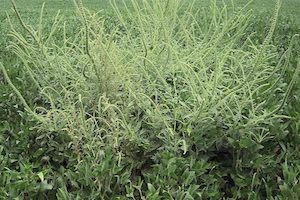Specialists at the Iowa State University Extension and Outreach have provided insight into how to manage winter annual weeds this planting season. As a result of a wet fall and mild winter, early weed management is essential this spring, according to the experts.
Horseweed, in particular, can be controlled by making applications before planting. Many of these weeds are likely flowering at the time of planting, meaning it’s best to act before they have time to establish roots.
Burndown treatments should follow herbicide label suggestions for carrier volume, nozzle type, carrier type, and environmental considerations. Planters will likely find that treatments made on sunny days with warm daytime and nighttime temperatures (>40 degrees Fahrenheit) will be more successful than those made in a cooler environment.
Achieving a clean field for crop planting is critical, and an effective early burndown against early spring and winter annual weeds can be beneficial. Those who use a product with residual activity will find that their fields should remain relatively weed-free. This will also allow for a delay in the next herbicide application until after crop planting.
Per usual, planters should check pesticide labels for planting restrictions. Certain formulations may perform better under cool conditions, for instance, compared to others on the market.
More information on planting guidelines and weed management can be found by visiting the ISU Extension and Outreach website.
